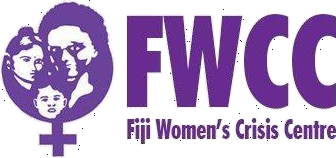Fiji Women’s Crisis Centre Calls for an End to Impunity for Violence Against Women and Girls
23 Nov, 2025

The Fiji Women’s Crisis Centre (FWCC) is calling for urgent and united action to end the persistent impunity surrounding violence against women and girls in Fiji, declaring that the justice system continues to fail survivors — particularly because of systemic weaknesses in policing.
“For more than 40 years, FWCC has seen that invisibility and silence follow most cases of sexual violence in this country,” said FWCC Coordinator Shamima Ali. “It is beyond dispute that our justice system — especially because of weaknesses in policing — is not working for survivors and victims of violence against women and girls.”
This year, as part of the global 16 Days of Activism Against Violence Against Women and Girls, FWCC is focusing on the theme “Violence Against Women and Girls: Ending Impunity.” The Centre says the continued failure to hold perpetrators accountable remains one of the greatest barriers to justice for women and girls in Fiji.
Despite the high prevalence of violence against women and girls, survivors often do not receive justice, and perpetrators are too often granted impunity for their crimes.
While every instance of violence is unique and personal, structural inequality and embedded patriarchal norms mean that many survivors face common barriers when attempting to access justice. From women who have experienced violence at the hands of high-profile individuals to those living with intimate partner violence, the obstacles that enable impunity are the same, including:
- A culture of victim-blaming that holds survivors responsible for their abuse.
- A justice system that frequently re-traumatises rather than supports survivors.
- Powerful individuals and institutions driven by cronyism and politics that shield perpetrators.
- Misogynistic beliefs that assume men deserve control over women’s bodies.
- Lack of accessible accountability mechanisms and adequate legal recourse.
- Stigma and shame preventing survivors from speaking openly about their experiences.
- Traditional and religious communities, leaders, and institutions that continue to treat violence against women as something to be minimised or negotiated.
“When we fail to hold perpetrators accountable, impunity intensifies the powerlessness of the targets of violence but also sends a message to society that male violence against women is both acceptable and inevitable,” said FWCC.
“Even with legal frameworks, a national action plan, and growing awareness, many survivors continue to face serious structural and societal obstacles to accountability,” Ali said. “Impunity persists because of policing and prosecutorial weaknesses, social norms that silence survivors, a lack of support for constrained services like FWCC, and the lack of accountability which leads to weak implementation of service delivery protocols.”
According to FWCC, reducing impunity will not be achieved through laws alone. It requires investment in survivor-centred services, survivor-centred policing, cultural change, and sustained political will — backed by transparent targets and resources.
Ali said that societal attitudes continue to deflect blame from perpetrators:
“One of the biggest challenges we have in this country is that we are not all on the same page. We blame everything else for the violence that women face — it’s the alcohol, it’s the woman’s fault, her dress was too short, her pants were too tight. We still hear this and ignore the perpetrator and the root cause, which is patriarchy.”
FWCC also raised concern about cases where police officers are themselves perpetrators, saying this undermines public trust and deters survivors from coming forward.
“There is impunity when survivors feel re-victimised by the police process,” Ali said. “We still have survivors telling us stories of police failing to record complaints, urging reconciliation with the perpetrator, or minimising the violence. This is very evident when police officers are perpetrators. This year, FWCC dealt with a case where the survivor was allegedly handcuffed and beaten by her husband, who is a police officer. He is still working, and no charges have been laid”.
Ali said women face double jeopardy when the perpetrator is a police officer. Despite the Fiji Police Force’s stated zero-tolerance policy for domestic violence, FWCC says that policy is not being applied in practice by all police officers.
“Some put pressure on survivors, saying things like, ‘Do you want him to lose his job? Who will feed you?’ These threats are directed at women — often police officers’ wives — who dare to complain,” Ali explained. She added that women are often counselled to go back home and told not to pursue complaints against their husbands, partners, or boyfriends who are perpetrators.
Ali warned that a culture of reconciliation continues to pressure victims to stay away from court, leaving women disillusioned with a justice system that appears “uninterested and hostile.”
“Women give up when the system shows them that their pain and story does not matter. That is the very definition of impunity — and it must end,” she said.
FWCC is urging all institutions — from law enforcement and government to communities and faith leaders — to take decisive steps to uphold accountability, strengthen survivor-centred responses, and end impunity once and for all.
“We also urge political leaders not to erase women and girls’ pain, suffering, or their experiences of violence.”
FWCC urges all national leaders, including political leaders, to stop the rhetoric and promote progressive actions to ending all forms of violence against women and girls.
ENDS
Email: fwcc.shamima@gmail.com
Website: www.fijiwomen.com
